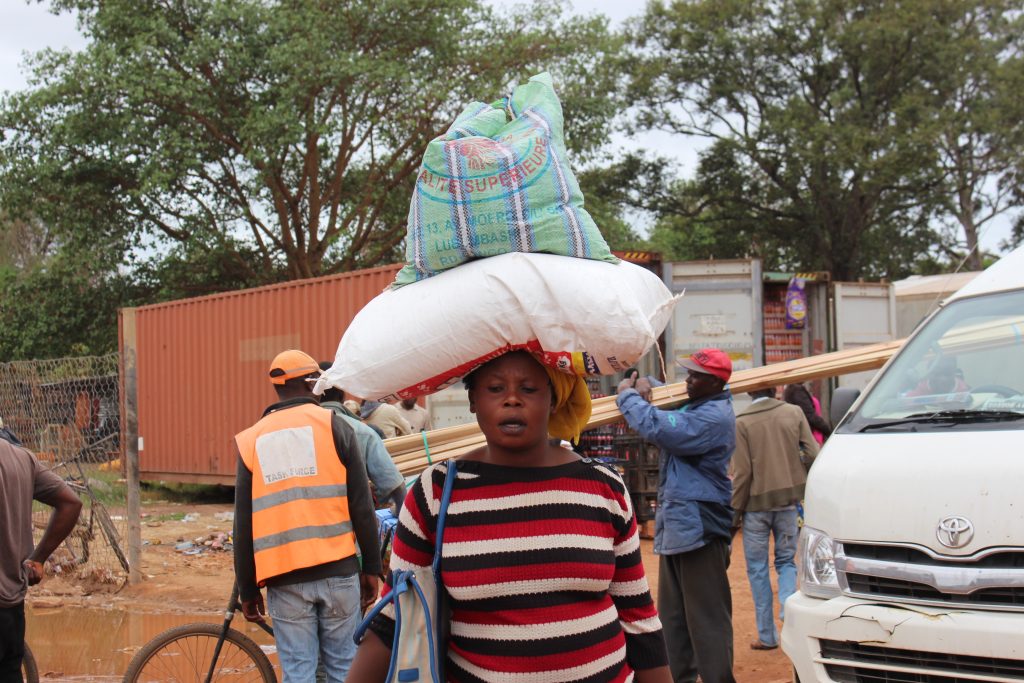
COMESA Secretariat, in collaboration with the Investment Climate Reform (ICR) Facility, organized a Public-Private Dialogue (PPD) workshop at the Kasumbalesa border between the Democratic Republic of Congo (DRC) and Zambia. This workshop marked the fourth and final edition of a series of dialogues aimed at economically empowering women and advocating gender-responsive trade policies throughout the region.
The series, which included workshops at the Busia, Chirundu, Mwami and Kasumbalesa borders, focused on enhancing women’s active participation in regional economic activities by improving trade facilitation. By engaging both public and private stakeholders, the workshops aimed to raise awareness about gender-sensitive trade policies and promote the adoption of the Simplified Trade Regime (STR). Additionally, the dialogues emphasized advancing the COMESA Gender Policy and the Protection of Small Cross-Border Traders.
These dialogues were also designed to strengthen public-private partnerships by fostering cooperation between border authorities, government ministries, and women’s business associations, thus creating a more inclusive environment for women traders. One of the key objectives was to address gender-based violence (GBV) in cross-border trade, with discussions focusing on identifying risks and establishing effective prevention and response mechanisms.
Mrs Beatrice Hamusonde, Director of Gender and Social Affairs at COMESA, emphasized the significance of the workshop, stating:
“This workshop is part of the COMESA Gender Policy, which views gender equality as a key driver of economic development.”
She also highlighted that the workshop supports the implementation of COMESA’s trade instruments, such as the Simplified Trade Regime (STR) and the Digital Trade Facilitation Program, noting:
“These instruments are designed to make cross-border trade more accessible and efficient for all, including women and youth traders.”
In her welcome speech, Ms Ruth Muchimba, a Customs Examiner at the Zambian Revenue Authority at Kasumbalesa, remarked: “We hope COMESA will push the agenda for implementing the STR and explore ways to empower all women. As we seek to improve trade facilitation, strengthen regulatory frameworks and unlock opportunities for SMEs, youth, and women entrepreneurs, it is crucial to enhance collaboration between policymakers and the private sector. A harmonized approach will not only reduce trade barriers but also create a more competitive and inclusive regional market.”
Mr Numbi Kitwa, a representative from the Directorate General of Migration in the DRC, said: “Women are always at the heart of our activities, and they must not remain vulnerable. They must be fully integrated into the economy, including those involved in cross-border trade.”
COMESA and the ICR Facility are committed to promoting gender equality through promotion of the implementation of gender-responsive trade facilitation instruments and addressing gender specific barriers to trade.
This workshop represented a significant step toward fostering gender equality in trade and creating an inclusive economic environment for women across the COMESA region. Through ongoing dialogue and collaboration, COMESA continues to work towards empowering women and strengthening cross-border trade policies that promote equality and economic growth.
The ICR Facility is co-funded by the European Union (EU), the Organization of African, Caribbean and Pacific States (OACPS) under the 11th European Development Fund (EDF), together with the German Federal Ministry for Economic Cooperation and Development (BMZ) and the British Council. It is implemented by GIZ, the British Council, Expertise France, and SNV.

